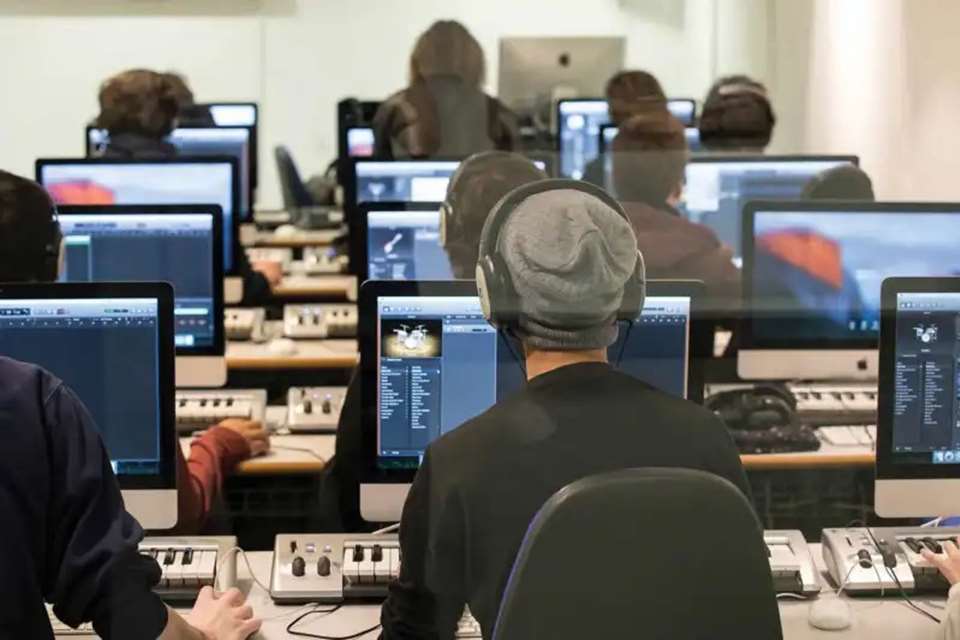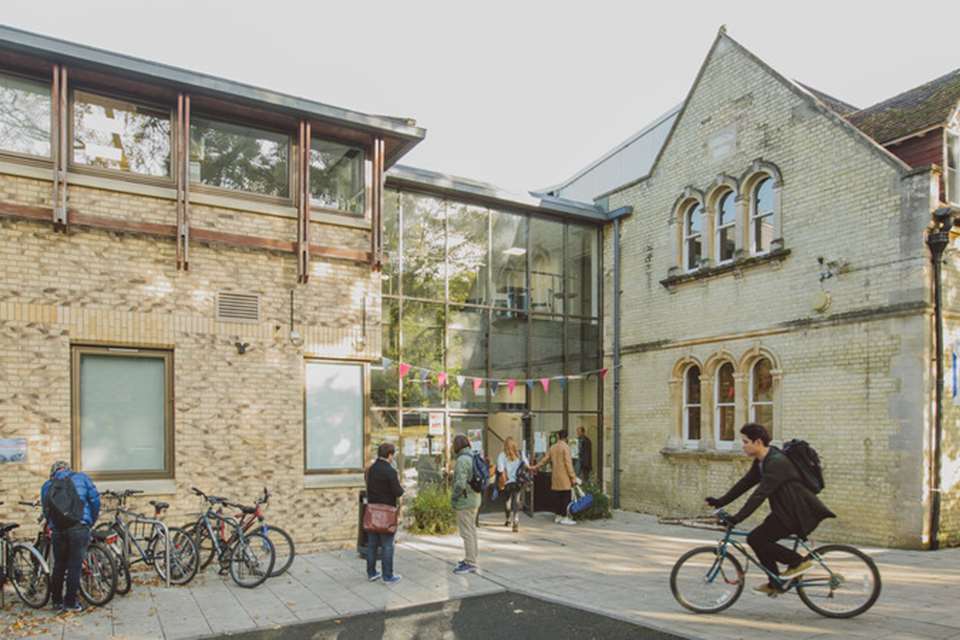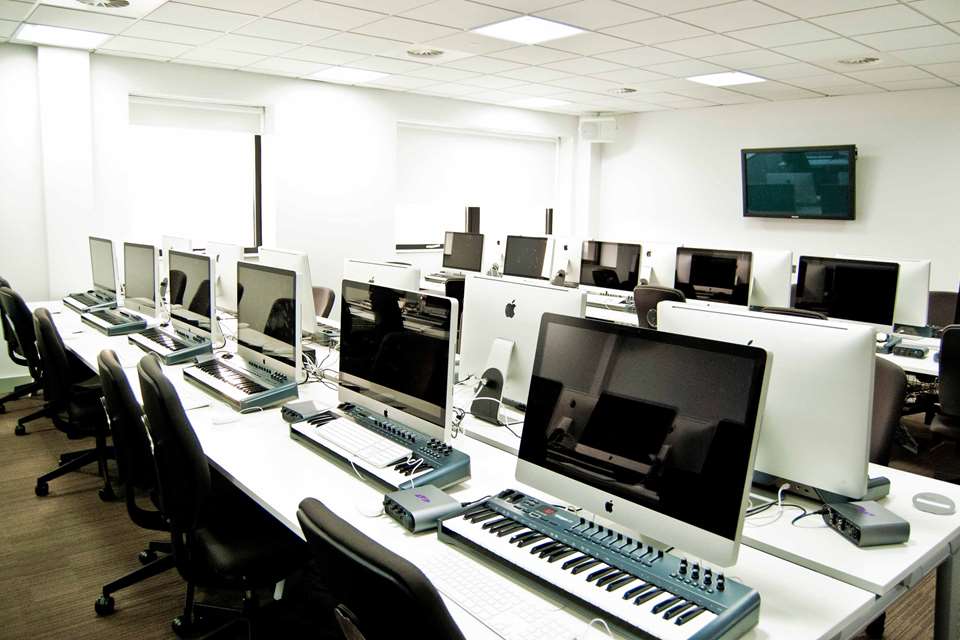Time to rebalance: the future for music provision
Anne Templer
Monday, April 1, 2024
Following recent course closures at Oxford Brookes University and the University of Kent, Anne Templer reflects on the inconsistency of music provision across the sector and on a worrying trend for all.

Adobe Stock /Martin951
The troubling news that further university music departments are shutting down follows a trend started in 2004. There have been 10 music department closures since then compared to three in the previous 15 years. There are complex reasons for this – not least because an ever-broader range of music courses has emerged nationally. The rise of vocational courses (musical theatre, for example), being taken up by aspiring professionals, also means that so-called academic music courses are having to work harder to persuade students of their value.
An uncomfortable truth, however, is that since 1992, when the majority of higher education institutions became ‘universities’, it has been in the interests of these institutions to retain customers (i.e. students). This has caused steep grade inflation and, frankly, less scrutiny of those entering higher education in the first place. In the 1970s and 80s, between 8% and 19% of young British adults went into higher education, compared to 50% now. The number of degrees awarded has increased fivefold and the number of first-class degrees has quadrupled. Music forms part of this pattern, and music departments have had to attract more students with fewer skills. I've seen it with my own eyes.
My experience of school music
If we look at the state of music education in primary and secondary schools (excluding fee-paying independent schools), we see that the quality and quantity of music education has diminished. The provision of classroom, instrumental and group music-making is expensive and requires specialists, physical space and equipment, and yet this is rarely acknowledged. A combination of ever-tightening budgets, lack of vision by heads of schools, and misplaced priorities has meant that provision is frequently poor.
My own children went to an otherwise happy primary school, where the music class consisted of a teaching assistant playing a recording which the children had to sing along to. The extracts were in the wrong key for the voices; the adult in charge had no knowledge of music; and there was no sense of what the objectives were. This token effort was eventually given up on, and the head, in trying to do the right thing and having heard that there was a musician among the parents, asked me to buy some percussion instruments for general school use. In the eight years that my children were at that school, those instruments were only ever used as props for class photographs.
I eventually went in to help with a Year 6 school production where the teacher was struggling. The teacher was attempting to teach a waltz where pupils had to move on the first beat of the bar, but the trouble was no-one knew where the first beat of the bar was. As part of the same show, the children had to sing an Elton John song but couldn't pitch any of the notes, because the song was intended for the adult male voice. When I suggested that the performance could be improved with a change of key, the head teacher hadn't any idea what I was talking about. It was at this point that I decided to re-arrange my professional commitments and help out so that pupils in their last year of primary school had a more positive musical experience.
Secondary schools – with some notable exceptions – continue to struggle with the same issues. My children are considered an exotic breed of instrumentalists, in a school of 2,000 pupils, due to music's increasingly rare skill-set. When I complained that, due to the EBacc, my children couldn't fit music in with their other GCSE options, exceptions were made because they were ‘gifted and talented’. This label grates with me, because what is exceptional about them is the parental insistence on instrumental tuition and music being a priority. It shouldn't be so. While I grudgingly accepted this privilege, it does nothing, of course, to address the thousands of children who have almost no music at all in their lives.
Readers of this article won't need reminding of the benefits of music to society, but especially for children. The learning of an instrument dramatically enhances a child's abstract thinking skills, and music enhances brain functions required for maths and other subjects. Likewise, IQ is improved, anxiety levels are reduced, patience and discipline are improved and, most importantly, a creative and arguably spiritual dimension is added to a child's life, which is probably incalculable.
Final thoughts
So, to return to the sad demise of university music departments, it should come as no surprise that the lethal combination of needing more and more customers with an ever-diminishing skill-set degrades the very qualifications to which they aspire. It is harsh but truthful that I have seen students gain places to study music in higher education who would not have had a prayer previously. Worse still, they have emerged at the other end with few discernible skills and the depressing realisation that they are unemployable as practical musicians, despite gaining a degree.
The situation is unsatisfactory for all. It is not the candidates' faults that they have misguidedly gone on to study music. It is not the school children's faults that they are not playing instruments, not participating in group music-making, not singing in assembly, and not hearing live music with real instruments. It is not the lecturers and professors' faults that they are having to work under these conditions. And it is not the parents' faults that they can't afford to subsidise all this.
The provision of music is expensive. Until we get to grips with its importance, the trajectory of degrading music at all levels – from schools to higher education and beyond – will continue.







